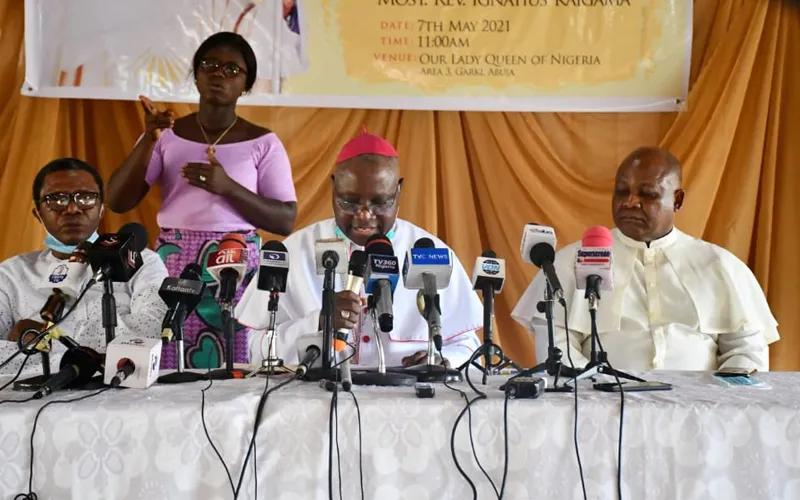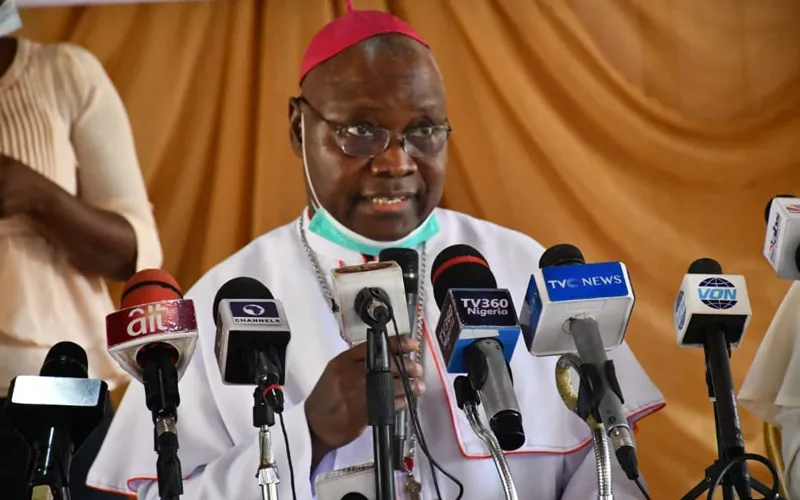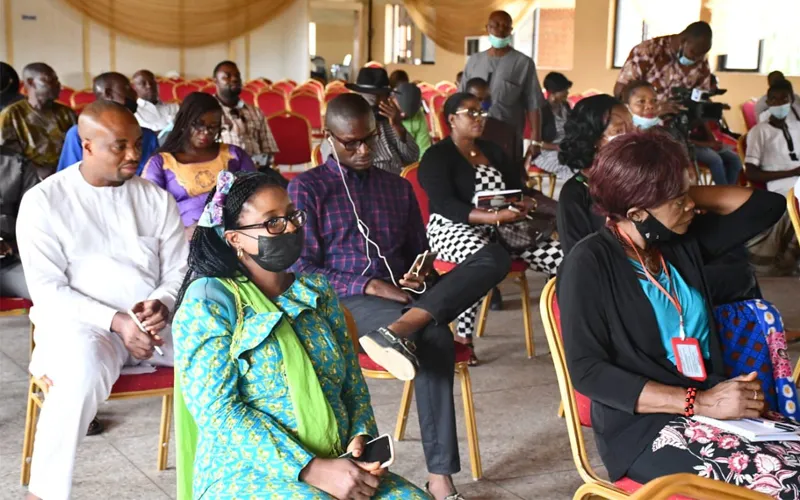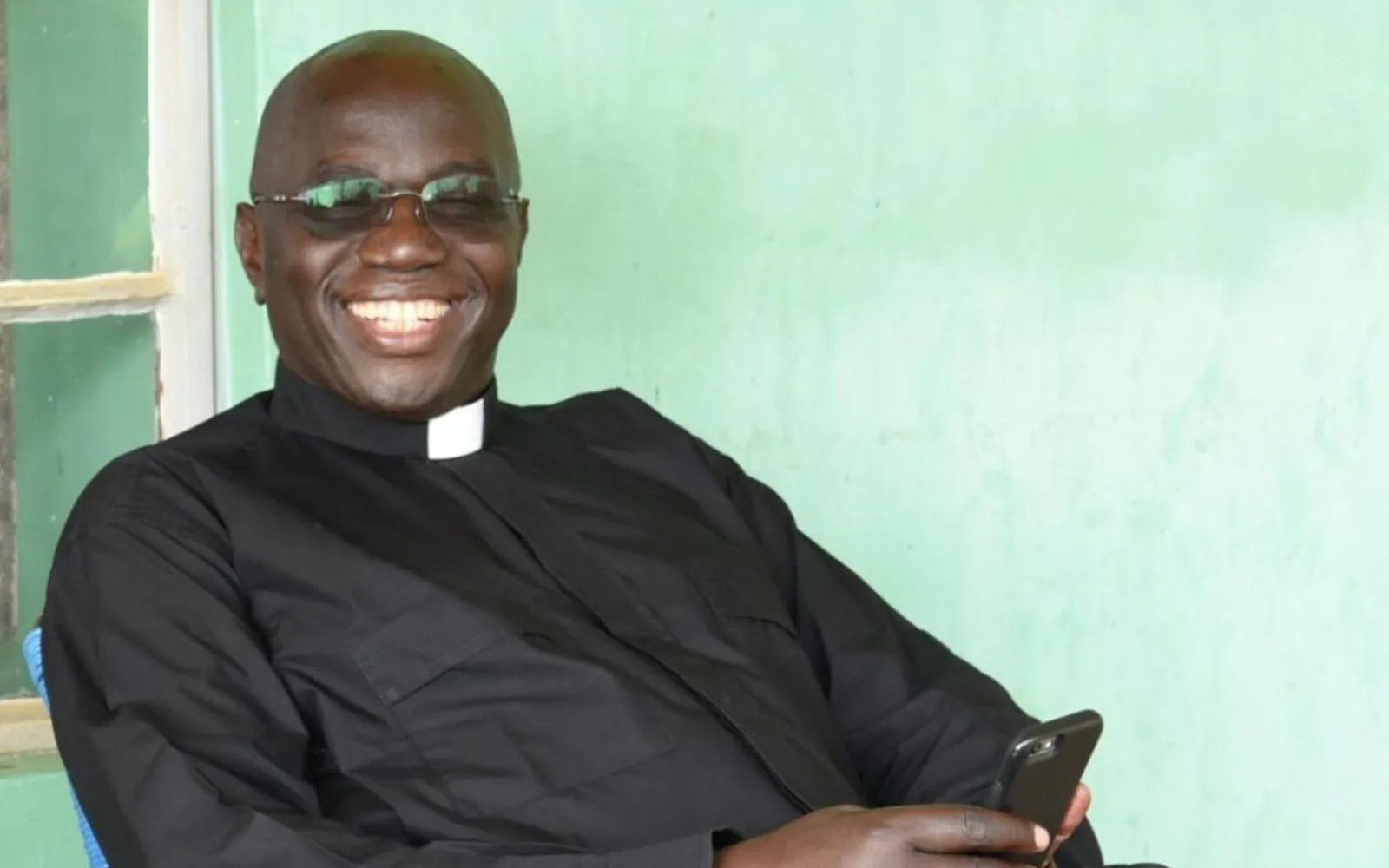
“More recently, social media has made it possible for everyone with a smartphone to publish whatever he or she likes, without any group playing any supervisory role,” Bishop Okpaleke says in his reflection on the World Day of communications, the annual event marked on the Sunday before the Solemnity of Pentecost.
The Nigerian Bishop adds, “It is as if Pope St. Paul VI saw the enormous potentials and the dangers in these modern means of communication and made it possible for the Church to engage them.”
According to the Local Ordinary of the Diocese of Ekwulobia, Information Communication Technologies (ICTs) world over “have compressed space and time.”
(Story continues below)
He says that through WhatsApp and other Internet-enabled social media applications, people, thousands of miles apart, can chat with each other either by text, voice, or video.
The challenge with this, the Bishop says, is relegating the more engaging person-to-person communications among neighbors and people who stay together.
“There is presently a seeming preference for mediated reality,” Bishop Okpaleke says, and adds, “Immediate presence, seen in the face-to-face encounter and the broad range of information that come therefrom, is being relegated to the background. There is a saying that people prefer to spend time on Facebook rather than look at real faces or read real books.”
In his message for the annual event, Pope Francis has pointed out the risk of misinformation being spread on social media having become evident to everyone owing to the growth of Internet-mediated communication.
“We have known for some time that news and even images can be easily manipulated, for any number of reasons, at times simply for sheer narcissism,” Pope Francis says in his message published 23 January 2021, Vigil of the Memorial of Saint Francis de Sales.
He urges communicators to be responsible for the information shared on the internet, and says, “All of us are responsible for the communications we make, for the information we share, for the control that we can exert over fake news by exposing it. All of us are to be witnesses of the truth, to go, to see and to share.”
In a reflection that was shared with ACI Africa ahead of the 2021 World Day of Communications, Bishop Emmanuel Badejo who is at the helm of the Pan African Episcopal Committee for Social Communications (CEPACS) appealed with journalists on the continent to construct authentic stories “that can help many countries and peoples of the world which have been abandoned to their fate under racism, oppression, discrimination, conflicts, insurgency, epidemic and war to find sympathy and solidarity.”

“After all, the fact is that many countries and institutions and individuals who can make a difference, really rely only on the reports of the media and journalists for their decision-making process for bad or for good,” Bishop Badejo said in the reflection that was shared with ACI Africa May 9.
Bishop Badejo’s message echoed that of the Chairman of the Commission for Social Communication of the Kenya Conference of Catholic Bishops (KCCB), Bishop Joseph Obanyi who also challenged journalists in Kenya to engage in evidence-based reporting rather than armchair journalism.

“Communicators are invited to hit the streets. Go out and discover. Take your cameras, take your pen and your paper and go to the situation of the people and write from what you see and experience,” Bishop Obanyi of Kenya’s Kakamega Diocese said May 6 while presiding over Holy Mass to mark, in advance, the global communications event.
“The challenge that awaits all of us is to communicate by meeting people, not to remain in the newsroom. Communication is about encountering people,” the Kenyan Bishop emphasized, urging journalists to “go out and encounter the people in their sufferings, joys and sorrows, celebrations of life and faith, then we shall be authentic and have reached what God wants for us.”
Agnes Aineah is a Kenyan journalist with a background in digital and newspaper reporting. She holds a Master of Arts in Digital Journalism from the Aga Khan University, Graduate School of Media and Communications and a Bachelor's Degree in Linguistics, Media and Communications from Kenya's Moi University. Agnes currently serves as a journalist for ACI Africa.













